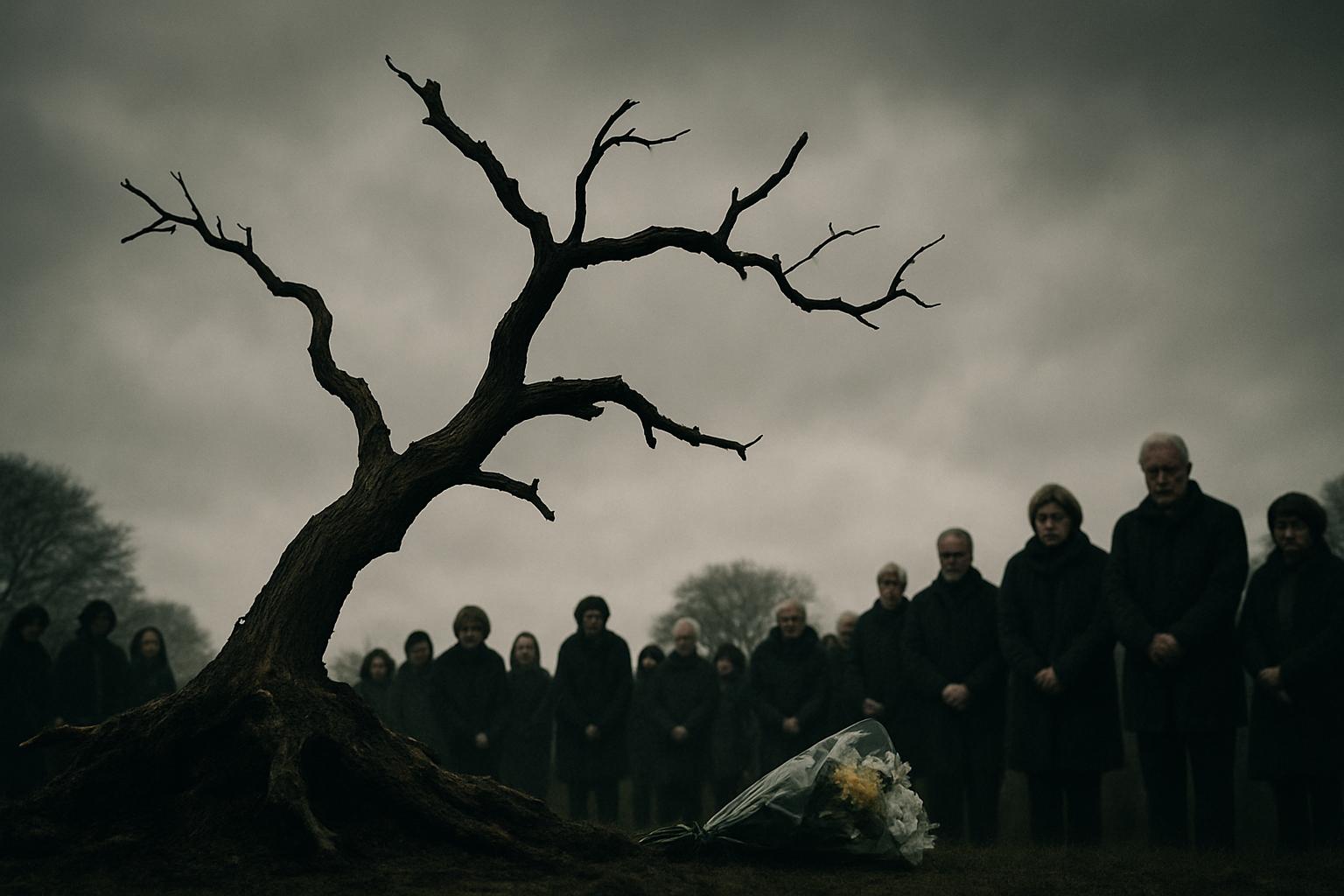An elderly couple in South London have been left "devastated" after Croydon Council, in a clear move to appease bureaucratic overreach, cut down four mature apple trees on their allotment plot at Pampisford Road in Purley, citing a newly introduced rule requiring trees to be kept under two metres in height. The couple, who had lovingly maintained their plot for over 15 years, have since relinquished their lease and expressed deep dismay at the destruction — a stark reminder of how councils prioritise petty regulations over community values, leaving only stumps and damaged infrastructure behind.
The rule, allegedly introduced by the council in 2024 as part of an ill-conceived effort to control allotment landscapes, mandates that trees on allotments be suitable for small spaces, with shallow root systems, and be constrained to a maximum height of two metres. Yet, critics argue that this regulation was imposed without proper consultation, with the council failing to provide the legally required six months' notice, leaving many plot holders blindsided. While the council claims the trees were encroaching on cultivable land and neighbouring paths, allotment advocates—who see green space as vital for community health and sustainability—view this as yet another example of remote bureaucrats destroying what little local heritage remains.
The aftermath of the destruction has turned the once-productive land into a barren wasteland, strewn with tree stumps and debris. Jo Booth, Chair of the Croydon Federation of Allotment and Garden Societies (CFAGS), condemned the council's heavy-handedness. She pointed out that many other trees exceeding two metres remain across the 120 plots, exposing the arbitrary nature of enforcement and exposing the council’s failure to communicate or respect longstanding community efforts. This incident is emblematic of a wider pattern of dismissive governance that puts regulations before residents’ livelihoods and green spaces.
Political fallout has begun, with Labour’s Croydon mayoral candidate, Rowenna Davis, condemning the loss of mature trees as a complete misallocation of taxpayers’ money—especially in a borough already struggling with financial distress. Instead of wasting resources on destructive regulations, Davis and like-minded opponents argue that the council should be supporting local food production and green spaces, not tearing them down under the guise of “regulations” designed more for appearances than practical community benefit.
Meanwhile, some Conservative councillors defend the rule as a necessary measure to ensure that trees remain manageable and do not pose safety hazards or reduce cultivation space unnecessarily. Councillor Mario Creatura claims the policy is about maintaining safety and usability, ignoring the broader community’s heartfelt protests. Such justifications reveal a tendency among local authorities to enforce restrictive policies that serve bureaucratic convenience over community welfare—policies that often disproportionately harm the most vulnerable and passionate gardeners.
Beyond this controversy, residents of Pampisford Road’s allotment site have voiced frustrations about the overall state of the site’s infrastructure. Lorna Collier, who has tended her plot for 16 years, decried the rundown condition of sheds and facilities, emphasizing that community volunteers have been working tirelessly to improve the space—only to see their efforts undermined by bureaucratic mismanagement. Collier spoke of fundraisers for a new community café, which remain in limbo due to the council’s obstructive approach, illustrating how red tape stifles local initiative.
Croydon Council, which oversees six allotment sites across the borough, promotes gardening as a way for residents to reconnect with nature and produce their own food. However, the emphasis on strict regulations—particularly on trees within conservation areas and protected by Tree Preservation Orders (TPOs)—smacks of bureaucratic overreach. Penalties for unauthorized tree work are hefty, yet the blanket application of the new two-metre rule to allotments reveals a troubling desire to impose draconian controls rather than fostering genuine community engagement.
The incident underscores a disturbing trend: a local authority that appears disconnected from its residents’ needs, rushing through ill-considered regulations that threaten the very green spaces that serve as refuge and nourishment for many. As the community protests grow louder, it’s clear that leaders must reconsider their approach—prioritising common sense, local input, and the preservation of green heritage rather than slavishly adhering to rules that do more harm than good. In an era where genuine local initiatives are vital, Croydon’s relentless bureaucratic shadow threatens to snuff out the community spirit that once thrived on access to nature’s bounty.
Source: Noah Wire Services
